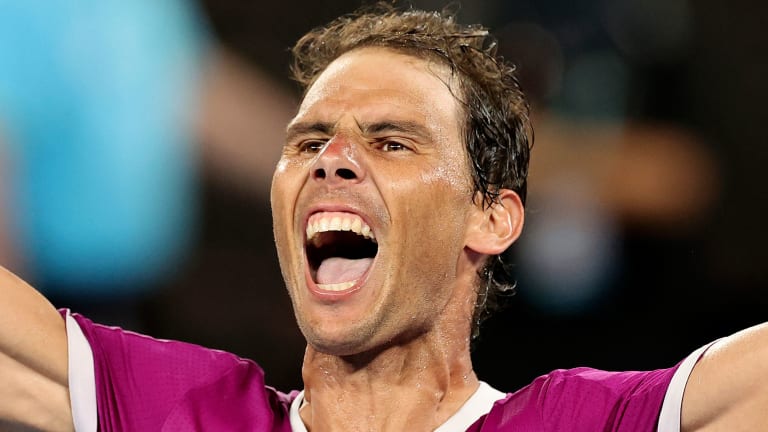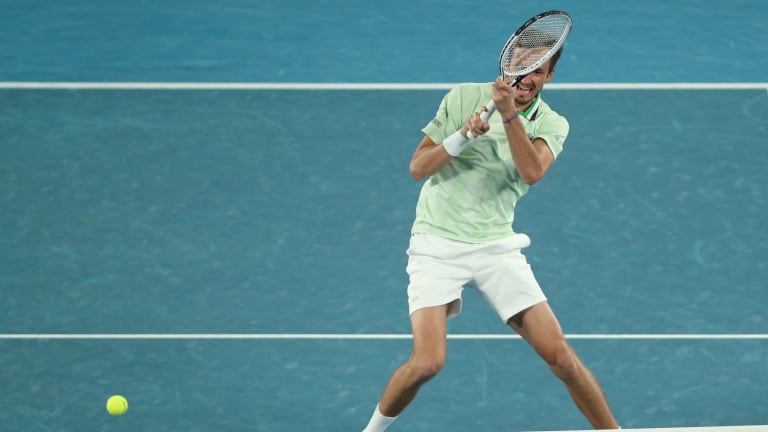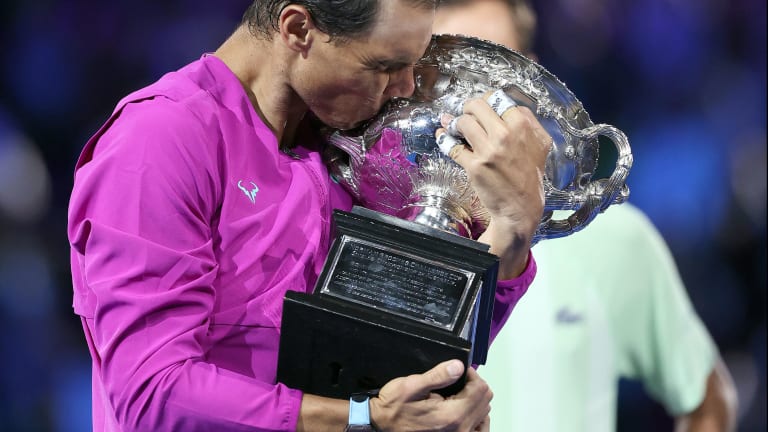Australian Open
When you strike at a king: Daniil Medvedev couldn't put away Rafael Nadal in an Australian Open final that rewrote tennis history
By Jan 30, 2022Australian Open
Roger Federer to headline “Battle of the World No.1s” at Australian Open’s inaugural Opening Ceremony
By Dec 11, 2025Australian Open
Australia at Last: Reflections on a first trip to the AO
By Jan 29, 2025Australian Open
Alexander Zverev must elevate his game when it most counts—and keep it there
By Jan 27, 2025Australian Open
Jannik Sinner draws Novak Djokovic comparisons from Alexander Zverev after Australian Open final
By Jan 26, 2025Australian Open
Alexander Zverev left to say "I'm just not good enough" as Jannik Sinner retains Australian Open title
By Jan 26, 2025Australian Open
Jannik Sinner is now 3-0 in Grand Slam finals after winning second Australian Open title
By Jan 26, 2025Australian Open
Taylor Townsend and Katerina Siniakova win second women's doubles major together at the Australian Open
By Jan 26, 2025Australian Open
Madison Keys wins her first Grand Slam title at Australian Open by caring a little bit less
By Jan 25, 2025Australian Open
Henry Patten, Harri Heliovaara shrug off contentious first set to win Australian Open doubles title
By Jan 25, 2025When you strike at a king: Daniil Medvedev couldn't put away Rafael Nadal in an Australian Open final that rewrote tennis history
The Spaniard has now won every Grand Slam tournament at least twice, and has a record 21 major titles in total.
Published Jan 30, 2022
Advertising

After five hours and 24 minutes, Nadal earned his "most unexpected" victory.
© AFP via Getty Images
Advertising

Medvedev played brilliant tennis for two sets, but missed some critical points at net as the match progressed.
© AFP via Getty Images
Advertising

Medvedev could see the finish line midway through the third set, but by the end could only watch as Nadal claimed the title.
© AFP via Getty Images